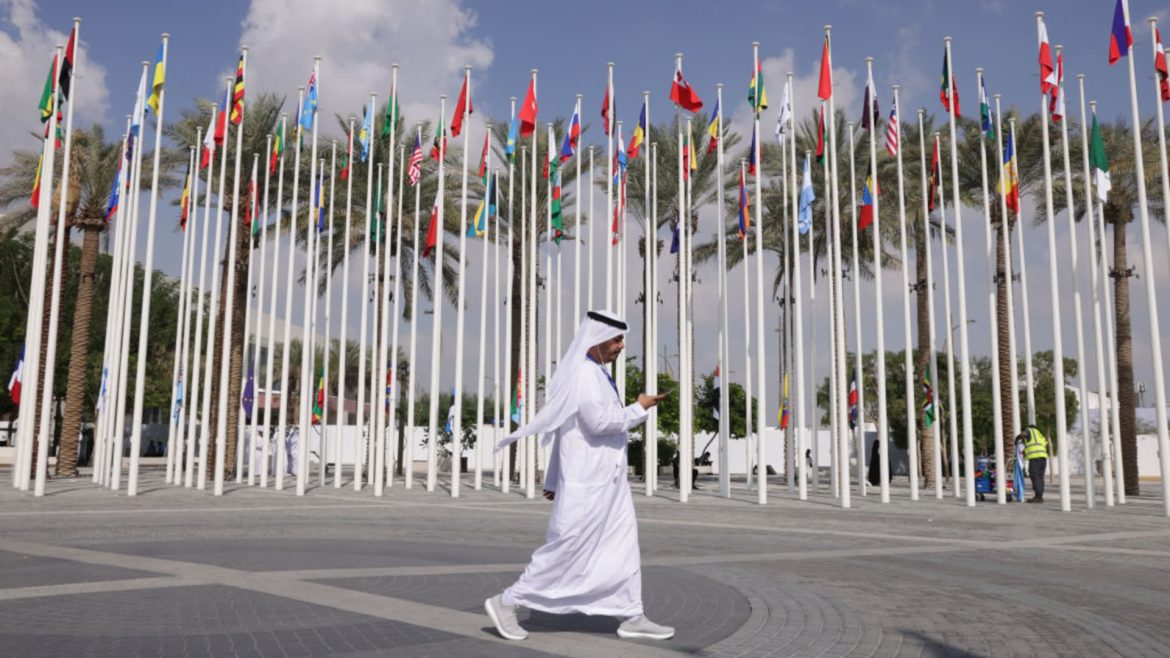**Countries unite at COP28 to agree on climate disaster fund**
*Dubai, UNITED ARAB EMIRATES —* The U.N. COP28 summit officially began with a groundbreaking decision as countries reached an agreement for a loss and damage fund to help nations affected by the climate crisis. This landmark deal builds on the momentum created by the deal for a loss and damage fund at COP27 in Egypt the previous year.
**A historic deal**
At COP27, a historic agreement was reached to establish a loss and damage fund. However, crucial details such as the size of the fund, who should contribute, and how the fund should be administered, remained unresolved until now.
On the opening day of COP28, delegates came together to finalize the operationalization of the fund, prompting a standing ovation from the audience, signifying a positive step towards addressing the pressing issue of climate disaster relief.
**Pledges and administration**
Several high-income countries have already pledged funds to the disaster relief fund, including Germany, the U.S., and Japan. The contributions are made on a voluntary basis, and all developing countries are eligible to receive direct support from the fund. Additionally, the World Bank will serve as the interim host of the fund for the next four years.
**Reactions to the agreement**
The announcement of the loss and damage fund was met with mixed reactions. While some hailed it as a historic decision, others emphasized the need for significant financial pledges from wealthy countries to ensure the fund’s effectiveness. Advocates argued that the fund is crucial to assist countries dealing with the impacts of climate change, especially those lacking the financial resources to defend against natural disasters.
**Reflecting on the outcome**
Analysts and experts reflected on the significance of the COP28 decision, describing it as a massive breakthrough and a demonstration of global cooperation. The establishment of the fund was seen as a positive momentum boost for ongoing negotiations. However, policymakers are now faced with the challenge of determining how much they are willing to contribute to the fund in order to meet the demands of low-income countries affected by the climate crisis.
As the summit progresses, the focus remains on securing adequate financial support to address loss and damage caused by climate change, paving the way for a more sustainable and resilient future for all nations.

I have been featured in numerous publications, both online and offline, and am a regular speaker at industry events. I am also the founder of Crypto University, an online educational platform that helps people learn about cryptocurrencies and blockchain technology. In addition to my writing and teaching career, I am also an active investor in the cryptocurrency space. I have made investments in some of the leading projects in the space, and my portfolio has outperformed the market by a wide margin
